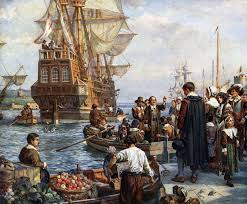On this date...
- katellashisadventure
- Sep 10
- 3 min read

In 1608, Having survived capture by Indians (reputedly through the efforts of Pocahontas, a chief's daughter), John Smith became president of Jamestown colony, the first permanent English settlement in North America.
In 1813, U.S. naval forces under the command of Oliver Hazard Perry defeated the British in the Battle of Lake Erie during the War of 1812.
In 1846, American inventor Elias Howe was granted a patent for his sewing machine, which revolutionized garment manufacture in the factory and in the home.
In 1846, Weeks behind schedule and the massive Sierra Nevada mountains still to be crossed, on what was likely September 10, 1846, the members of the ill-fated Donner Party realize they are running short of supplies and send two men ahead to California to bring back food.
In 1897, Lattimer Massacre: a sheriff's posse kills 19 unarmed immigrant miners in Pennsylvania, United States
In 1910, Great Idaho Fire destroys three million acres of timber
In 1919, almost one year after an armistice officially ended the First World War, New York City holds a parade to welcome home General John J. Pershing, commander in chief of the American Expeditionary Force (AEF), and some 25,000 soldiers who had served in the AEF’s 1st Division on the Western Front.
In 1921, Fatty Arbuckle, a silent-film era performer at the height of his fame, is arrested in San Francisco for the rape and murder of aspiring actress Virginia Rappe. Arbuckle was later acquitted by a jury, but the scandal essentially put an end to his career.
In 1920, F. Scott Fitzgerald publishes his first short story collection, Flappers and Philosophers. In a copy he sends critic H.L. Mencken, Fitzgerald labels four stories “worth reading,” one “amusing” and remaining three “trash.”
In 1924, A judge in Chicago sentenced Nathan Leopold Jr. and Richard Loeb to life in prison for the murder of 14-year-old Bobby Franks - a "thrill killing" that had shocked the nation.
In 1935, Sen. Huey P. Long, the "Kingfish" of Louisiana politics, died two days after being shot in Baton Rouge.
In 1945, Mike the Headless Chicken is decapitated in Fruita, Colorado, but survives for another 18 months before choking to death
In 1948, American-born Mildred Gillars, the Nazi wartime radio broadcaster known as "Axis Sally," was indicted in Washington, D.C., for treason.
In 1955, The TV show Gunsmoke began airing on CBS, and by the time it ended, in 1975, the series was the longest-running western on American television.
In 1963, 20 Black students entered Alabama public schools following a standoff between federal authorities and Alabama Governor George C. Wallace.
In 1979, four Puerto Rican nationalists imprisoned for a 1954 attack on the U.S. House of Representatives and a 1950 attempt on the life of President Harry S. Truman were freed from prison after being granted clemency by President Jimmy Carter.
In 1987, Pope John Paul II arrived in Miami, where he was welcomed by President Ronald Reagan and first lady Nancy Reagan as he began a 10-day tour of the United States.
In 1991, Seattle rock band Nirvana releases its breakout single, “Smells Like Teen Spirit.”
In 1991, the Senate Judiciary Committee opened hearings on the nomination of Clarence Thomas to the U.S. Supreme Court. The proceedings would become a watershed moment in the discussion of sexual harassment when Anita Hill, a law professor who had previously worked under Thomas, came forward with allegations against him.
In 2000, Andrew Lloyd Webber's musical Cats closed after 7,485 performances; it was the longest-running show on Broadway until it was surpassed by Lloyd Webber's Phantom of the Opera in 2006.









Comments